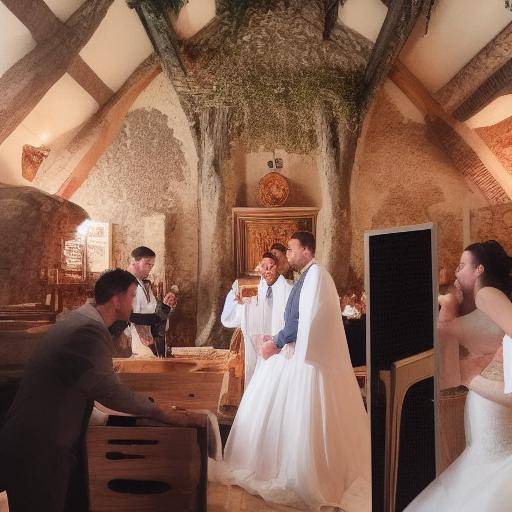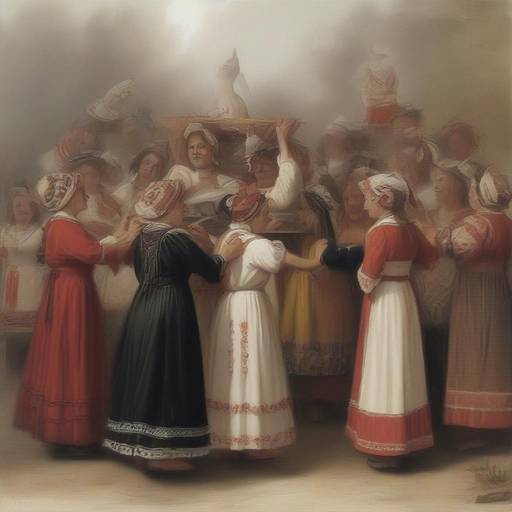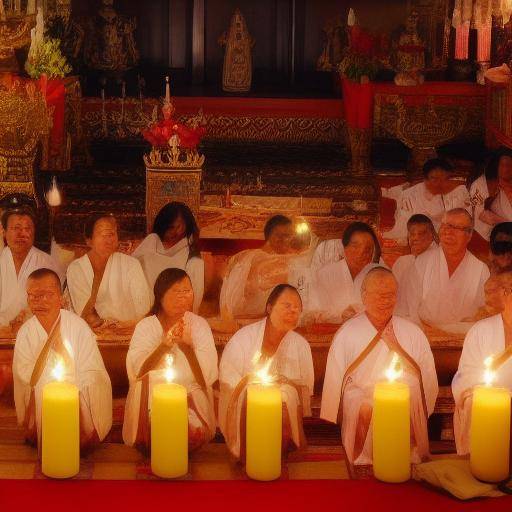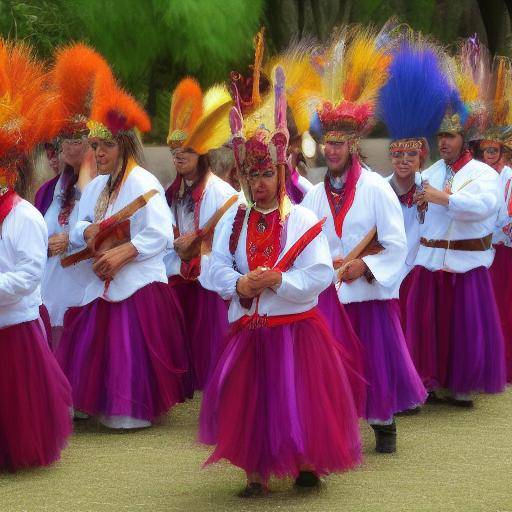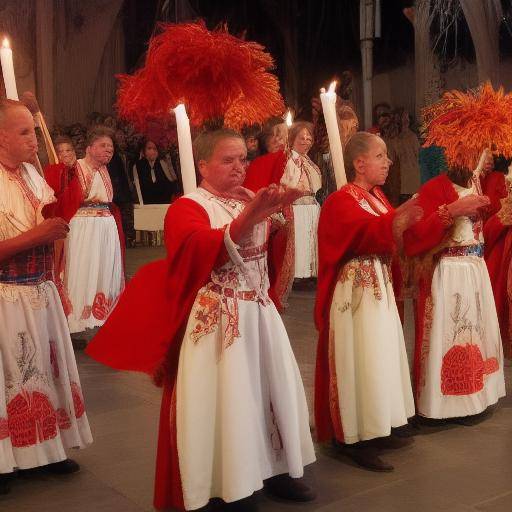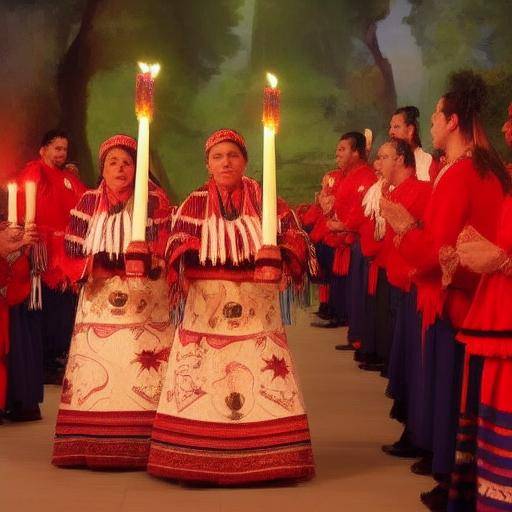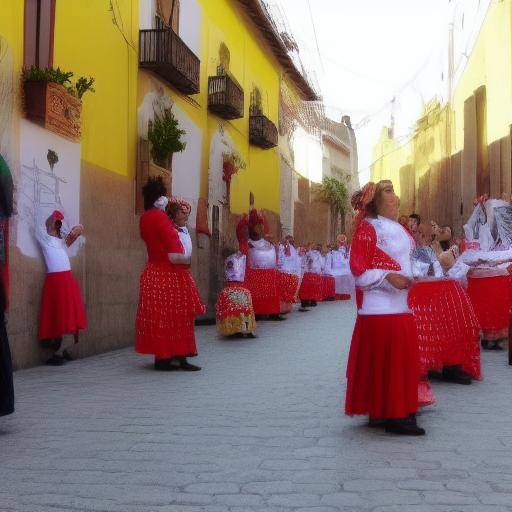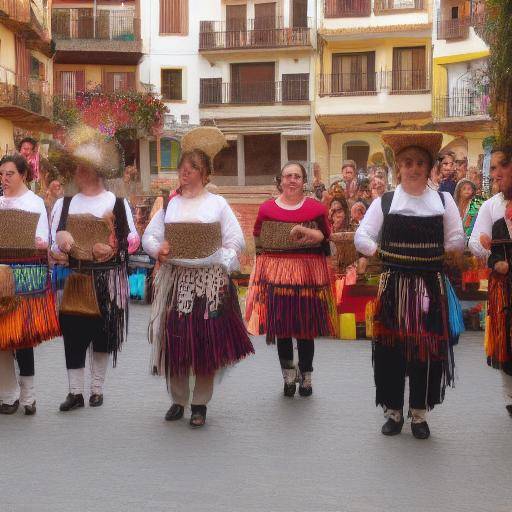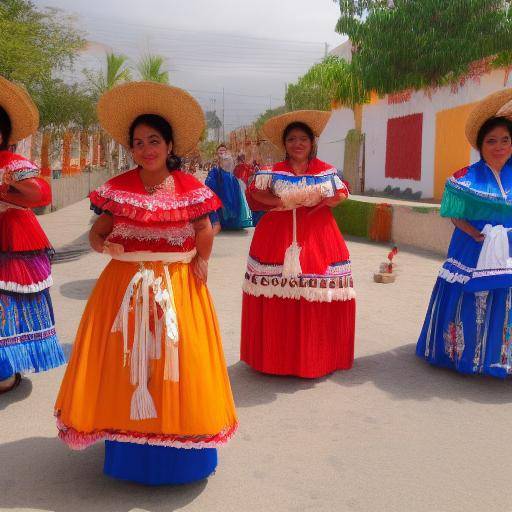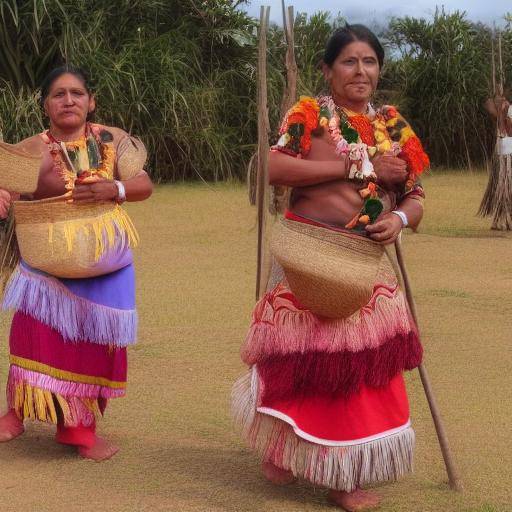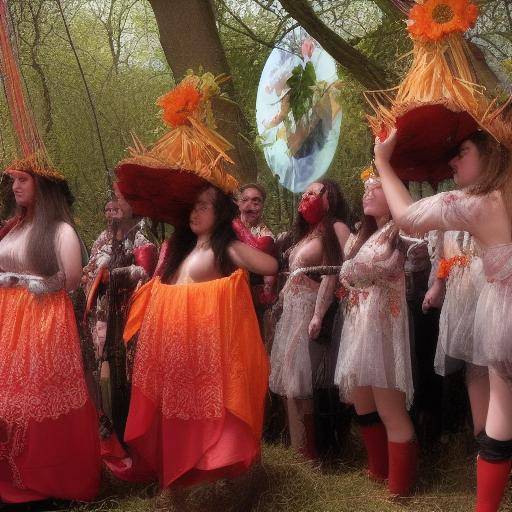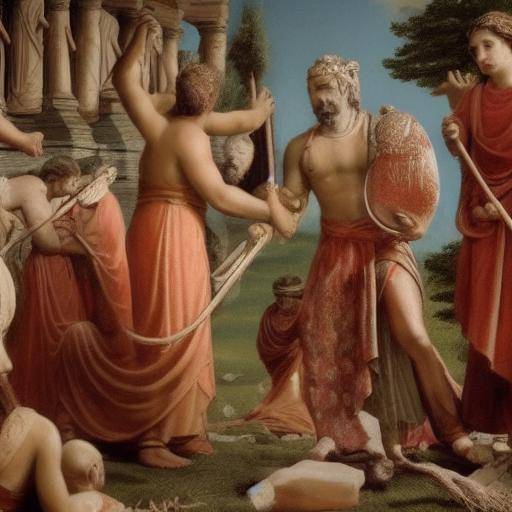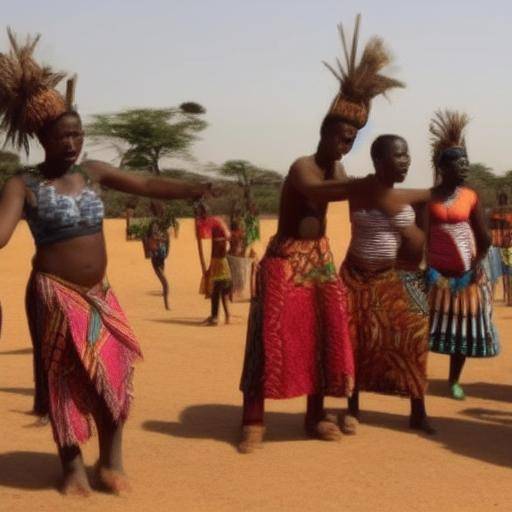
The rites of initiation in African cultures are deeply rooted practices that mark the passage of childhood to adulthood. These rituals, loaded with symbolism and cultural significance, play a crucial role in the formation of the identity, social roles and beliefs of African communities. In this article, we will explore the history, importance, variations and impact of the rites of initiation on the various African cultures. We will discover how these rituals transcend geographical and ethnic divisions, and we will examine their implications in the contemporary world.
Introduction
Since time immemorial, African cultures have held initiation rituals to mark the transition of young people to adult life. These rituals, performed with deep respect for ancestral traditions, represent a crucial moment in the life of an individual and the community as a whole. Initiation rites often involve physical, mental, spiritual and emotional tests that seek to prepare young people to assume roles and responsibilities within society.
African initiation rites vary significantly from region to region, reflecting the cultural diversity of the continent. Throughout this article, we will explore the different types of rituals, their cultural significance and their relevance today. We will also examine the deep connections between these rituals and spiritual beliefs, community values and cultural identity in African societies.
History and background
The rites of initiation into African cultures have profound historical roots and have evolved over millennia. These rituals go back to ancient African civilizations, where the passage from childhood to adulthood was celebrated with ceremonies that included dances, music, and resistance tests. These ceremonies not only had an educational and formative purpose, but also of integration and social cohesion.
Historical examples
In the Xhosa tribe of South Africa, the initiation rite known as Ulwaluko has been practiced for centuries. This rite includes circumcision and a period of detention where young people are taught about culture, social norms and the responsibilities of men in the community.
In West Africa, Ghana ' s Ashantis celebrate Bragoro, an initiation rite for girls who mark their way to femininity. This ritual includes teachings on maternity, marriage and the role of women in Ashanti society.
Analysis in Deep
The initiation rituals in African cultures have endured over the centuries, facing challenges and adapting to changes in society. They have become a vital part of the African cultural fabric and have proven to have a significant impact on the lives of people participating in them.
Benefits and Challenges
Benefits
- Identity training: The rites of initiation help young people understand their cultural identity and their role in society.
- Social cohesion: These rituals strengthen community ties and promote solidarity.
- Transmission of Knowledge: Through the rites of initiation, ancestral knowledge and cultural values are transmitted.
Challenges
- Globalization: The influence of globalization and modernization can dilute traditional practices.
- Health and Safety: Some rites, such as circumcision, present health risks if not performed in safe conditions.
- Human Rights: The international community has expressed concerns about certain aspects of initiation rites, considering some as human rights violations.
Comprehensive review
The role of the rites of initiation in African cultures goes beyond personal training; it also influences social cohesion and the sense of identity in communities. By examining these rituals in depth, we can better understand their value and the need to preserve them.
Case Studies and Best Practices
Ulwaluko in the Xhosa Tribe
This rite of male initiation includes a series of teachings on respect, responsibility and courage. The elders of the community play a crucial role as mentors, ensuring that traditions are transmitted from generation to generation.
Bragoro in Ashanti Culture
Bragoro is a feminine initiation rite that includes ceremonies and rituals designed to prepare girls for their roles as wives and mothers. The teachings focus on ethics, proper behaviour and responsibilities within marriage and the family.
Comparative analysis
While it is crucial to understand the initiation rituals within a specific culture, it is also enriching to compare and contrast the different approaches used in different African cultures.
Similarities and Variances
Similarities
- Values Education: In all cultures, initiation rites are used to teach social values and norms.
- Resistance Tests: Many rites include physical and mental tests to demonstrate the strength and preparation of the initiates.
Variances
- Methods: Specific practices, such as circumcision or insulation tests, vary among cultures.
- Gender approach: Some rites are intended only for men or only for women, while others include both genres in different ceremonies.
Practical Tips and Accessible Advice
For those who wish to understand better or participate in the rites of initiation in African cultures, it is essential to offer practical advice and guidance to address these rituals with respect and sensitivity.
Practical Tips
- Research and Respect: Invest thoroughly about rituals and their meanings before participating or commenting on them.
- Participation with Guide: Always participate under the guidance of an experienced community member who can explain traditions and practices.
- Cultural sensitivity: Respect beliefs and practices, even if they differ significantly from their own experiences and values.
Industry Perspectives and Expert Reviews
The opinions of experts and industry leaders provide a valuable insight into initiation rituals in African cultures. By collecting and presenting these perspectives, we can shed light on...
Opinions of Experts
- Cultural anthropologists: They have emphasized the importance of the rites of initiation in the preservation of cultural identity and social cohesion.
- Community LeadersThey emphasize the need to maintain and adapt these practices in a safe and respectful manner with human rights.
Case Studies and Real Life Applications
Detailed case studies provide practical information on how initiation rituals are performed in African cultures and show real examples of how these rituals impact people and communities.
Examples of Case Studies
- The Masai Tribe in Kenya: Young Masai pass through a rite of circumcision that marks their transition to adulthood, followed by a period of community life where they learn essential skills for life.
- The Himba Tribe in Namibia: The young Himba pass through a rite of initiation that includes teachings on maternity and the role of women in society, as well as practices of beauty and personal care that are an integral part of their culture.
Future Trends and Predictions
Emerging trends related to the rites of initiation in African cultures allow us to glimpse the path that will take such rituals in the future.
Emerging trends
- Cultural revaluation: There is growing interest on the part of young communities in rediscovering and revitalizing their ancestral traditions.
- Adaptation to Modernity: Communities are looking for ways to maintain their relevant and safe initiation rites in a modern context, respecting human rights and safe practices.
Future predictions
- Integration of Formal Education: We are likely to see a greater integration of formal education and traditional rites, providing young people with a holistic approach to their formation.
- Major Global Visibility: With the growing interest in cultural diversity and the preservation of traditions, African initiation rites could gain greater visibility and recognition globally.
Conclusion
In short, the rites of initiation in African cultures have a rich cultural and symbolic value, and play a key role in the formation of identity and social cohesion. As we continue to explore the diversity and depth of these rituals, it is crucial to remember...
Summary of Key Points
- Cultural Importance: The initiation rites are essential for the transmission of cultural values and knowledge.
- Modern Challenges: Adapting these rituals to a modern context presents challenges, but also opportunities to revitalize and preserve these traditions.
- Future Promise: With a focus on security and respect for human rights, initiation rites can continue to play a vital role in African communities.
Frequently asked questions
What is the importance of the rites of initiation in African cultures?
The rites of initiation in African cultures play a crucial role in the transition of young people to adult life, as well as in the preservation of traditions and community cohesion. These rituals instill fundamental values, norms and knowledge for participation in society.
How have initiation rites evolved over time?
The rites of initiation have experienced significant changes to adapt to sociocultural changes, maintaining their essence and cultural significance. The influence of globalization and health and human rights concerns have led to some adaptations and reinterpretations.
What impact do initiation rituals have on participants and the community in general?
The initiation rites have a clear impact on the participants, as they prepare them to assume roles and responsibilities in society. At the community level, these rituals foster social cohesion, transmit traditional knowledge and reinforce cultural identity.
What challenges do initiation rites face today?
At present, initiation rites face challenges such as social change, globalization and the influence of new ideas and practices. Maintaining the balance between preserving traditions and adapting to modern changes is a significant challenge.
How can people from other cultures understand and respect African initiation rituals?
Understanding and respect for African initiation rituals require a respectful approach, willingness to learn about cultural practices and consideration of how such rituals are integrated into the life of the community. Cultural sensitivity and openness to new experiences are fundamental.
What are the future prospects for initiation rites today?
Future prospects for initiation rites in African cultures suggest greater appreciation of these rituals in the context of cultural preservation and the promotion of heritage. As African communities seek to maintain their cultural identity in a globalized world, initiation rituals are likely to continue to play a crucial role in intergenerational transmission of knowledge and values.
This extensive analysis of the rites of initiation in African cultures gives us a deeper understanding of the cultural, social and spiritual importance of these rituals. In exploring history, contemporary practices and future prospects, we have been able to shed light on a fundamental aspect of African societies that deserves thoughtful consideration and deep respect for their traditions.






